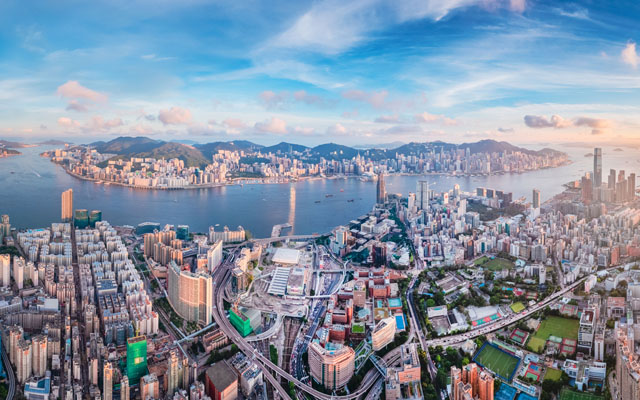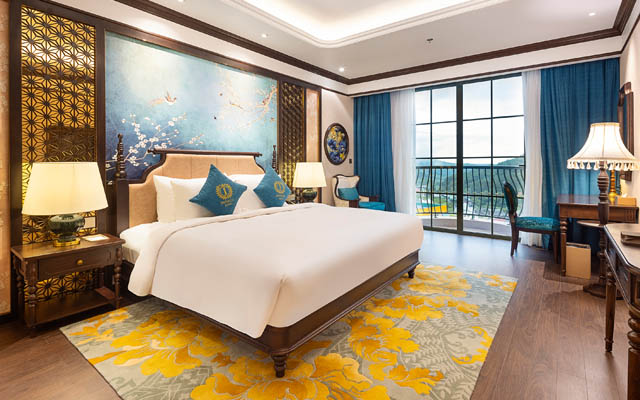The 15th National Games (NG), the 12th National Games for Persons with Disabilities (NGD) and the ninth National Special Olympic Games (NSOG) will be co-hosted by Guangdong, Hong Kong and Macau in November and December this year, marking the first joint staging of the events.
The games will highlight Hong Kong’s role in the Greater Bay Area (GBA) and provide a platform for regional cooperation in sports and tourism.

According to the National Games Coordination Office (NGCO) in Hong Kong, the event demonstrates the country’s capacity to host large-scale sports events and promotes exchanges and integration in the GBA. It will also provide experience and a foundation for jointly hosting future events.
An NGCO spokesman told TTG Asia: “To support the hosting of the games, a total of eight hotels have been designated as official hotels for the NG, while four hotels have been designated for the NGD and the NSOG to accommodate athletes, technical officials and delegates. These hotels were selected through open tender based on criteria such as category, capacity, facilities, management plan, experience, green certification, security measures and proximity to competition venues.
“As part of the promotional efforts, the NGCO has collaborated with the Hong Kong Tourism Board to augment the publicity of the games through their multi-faceted channels, both online and offline. These channels include adding NG, NGD and NSOG information to the Hong Kong Tourism Board’s website, social media platforms, consumer and trade events, as well as visitor centres. The NGCO has also arranged mascot displays at some of the festive events such as the Chinese New Year Parade.”
Nina Hotel Tsuen Wan West will host delegates of Para Table Tennis for the NGD of China and Special Olympics Table Tennis for the NSOG, including athletes, instructors, judges and working teams, from late November until mid-December. During their stay, they will be provided with accommodation and three meals a day. Approximately 350 of the hotel’s 1,608 rooms will be serviced daily.
Nina Hospitality managing director Simon Manning said: “The 2025 National Games represent far more than a sporting event; they are a catalyst for transformative growth across Hong Kong and the GBA. I see this as a pivotal moment to advance three key pillars of our region’s future like economic and tourism acceleration as the games are expected to attract over 100,000 spectators (forecasted by HKSAR government), generating immediate revenue for hotels, retail, and F&B sectors while creating jobs. Beyond short-term gains, the global spotlight will reinforce Hong Kong’s position as Asia’s events capital, unlocking long-term tourism and MICE opportunities.
“By hosting this milestone event, we are not just welcoming athletes, we are advancing Hong Kong’s role as a dynamic connector within the nation’s development blueprint. The National Games will leave us a stronger economy, a more integrated region, and a prouder, healthier community.”
Hong Kong Hotels Association chairman Alex Wu shared: “These games mark a milestone in cross-regional collaboration, strengthening ties across the GBA and showcasing Hong Kong’s capability in hosting mega events. It is a prime opportunity for the hotel sector to demonstrate our professionalism, inclusivity, and readiness to support large-scale international gatherings.
“Our commitment to biliteracy and trilingualism ensures seamless service for diverse guests, while our latest infrastructure – including Kai Tak Sports Park and the West Kowloon Cultural District – positions Hong Kong as a sports and cultural tourism leader. The games also support our broader Tourism Everywhere strategy, and we are leveraging social and global media platforms to build momentum for welcoming the 2026 Lions Clubs International Convention, which will bring over 10,000 international delegates to Hong Kong. This is a defining moment for Hong Kong’s hospitality sector to reaffirm its role in advancing tourism excellence, regional integration, and global engagement. We look forward to contributing to the success of these games and beyond.”
At press time, the NGCO was working with Guangdong counterparts on the selection of travel agents to develop travel products bundled with tickets to the games, aimed at attracting more spectators and promoting tourism in the GBA.


















